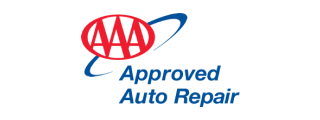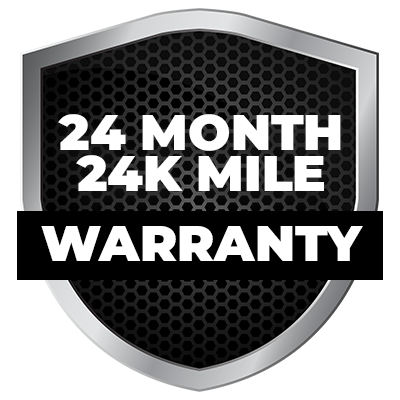Your Complete Full-Service Auto Repair Shop in the Northwest Chicago suburbs
ASE Certified Technicians ~ 3 Convenient Locations
24-Month/24k-Mile Parts and Labor Warranty
Over 1 Million Satisfied Customers Served!
Customer Stories
Our Reviews Speak for Themselves
by Jeanine B.
"Want honesty, look no further. I have been a customer of Casey's for 30 years. This team is always there for you. They treat your car like it's their own."
by Stephanie R.
"Casey auto always gives the best service, which is why you’ll always see them packed with customers! [...] Great and friendly service, honest advice, and for the best price around too."
by David H.
"They know what they are doing, and they are truly honest. I trust them completely! One very nice bonus - the crew at Casey is kind."
A Bit About Us
Welcome to Casey Automotive
Your Trusted Full-Service Repair Shop
At Casey Automotive, we are proud to be a family-owned, full-service auto repair shop with over 45 years of experience in the industry. Since 1976, we've been dedicated to providing comprehensive repair solutions for all makes and models, foreign and domestic, no matter how big or small the job. As an AAA Approved Auto Repair Facility, we uphold the highest standards of service quality and customer satisfaction. With ASE-certified technicians at our three convenient locations in Arlington Heights, Palatine, and Streamwood, IL, you can trust that your vehicle is in the hands of professionals who care.
Committed to Excellence and Customer Care
At Casey Automotive, we believe in treating our customers like family. Unlike many shops, our technicians are not paid on commission, allowing us to focus on integrity and value instead of sales volume. Our goal is to deliver honest and efficient service by thoroughly listening to your needs and providing tailored solutions.
From routine maintenance to complex repairs, our team is equipped with state-of-the-art tools and training to ensure every job is done right the first time. As a proud Bosch Service Center, we utilize high-quality Bosch wiper blades and brake pads, ensuring durability and reliability in every service. Additionally, we are an authorized dealer for Continental and General Tires, offering a wide selection of premium tires to meet your driving needs. For reliable vehicle performance, we trust ACDelco batteries, known for their long-lasting quality.
To show our commitment to your satisfaction, we offer a 24-month/24,000-mile warranty on parts and labor, free shuttle service, complimentary loaner vehicles, and a clean, comfortable waiting area complete with free Wi-Fi, gourmet coffee, and high-definition TVs. At Casey Automotive, you’ll experience expert care and unmatched customer service every time you visit.
Supporting Our Community and Environment
We take great pride in being a positive force in the communities we serve. Our commitment goes beyond exceptional service—it extends to sustainable practices that protect our environment. At Casey Automotive, we recycle oil, anti-freeze, and other materials while utilizing energy-saving lights and appliances. We also offer extended warranty work, 24-hour towing, and roadside assistance, ensuring you have access to help whenever you need it. Stop by any of our three locations, and experience the Casey Automotive difference—a family-owned business dedicated to quality, care, and community.
What We Do
Automotive Services
Reliable Auto Maintenance and Repairs in Arlington Heights, Palatine, & Streamwood, IL
Regular tire and wheel care ensures safety, traction, and fuel efficiency. Prevent uneven wear and extend tire life with our service.
Maintain stability and comfort by addressing steering and suspension issues early. Proper care ensures safe driving.
Keep your transmission running smoothly with timely repairs. Prevent breakdowns and extend your vehicle’s lifespan.
Guiding Principles
Our Philosophy
What Drives Us at Casey Automotive
At Casey Automotive, our values define who we are and how we serve our customers. We strive to maintain the highest standards of integrity, deliver exceptional customer care, and support the communities we serve through sustainable practices.
Integrity & Honesty
Focused on transparent service and fair pricing, building trust through quality work over sales tactics.
Customer Care
Providing personalized service and amenities like free shuttles and loaner vehicles to ensure a comfortable experience.
Community & Sustainability
Supporting our community and practicing eco-friendly initiatives, including recycling and energy-efficient technologies.
Why Choose Us
Our Amenities and Benefits
Experience Comfort and Convenience in the Northwest Chicago Suburbs
01
High-Quality
Auto Parts
02
Expert ASE
Technicians
03
3 Convenient
Locations
04
Waiting Room
and Wi-Fi
05
Shuttle
Service
06
Loaner
Vehicles
07
24-Hour
Towing
08
Snacks and
Beverages
Brands We Work On
Expertise Across All Makes & Models
Vehicle Auto Care Specialists in Arlington Heights, Palatine, & Streamwood, IL
At Casey Automotive, we take pride in being a one-stop solution for all your automotive needs, regardless of the make or model of your vehicle. Our team of ASE-certified technicians is experienced in servicing a wide variety of cars, trucks, SUVs, and vans—both foreign and domestic. Whether you own a reliable family sedan, a powerful work truck, or a high-performance sports car, we have the skills and equipment necessary to keep it running at peak performance. Our shops are equipped with state-of-the-art diagnostic tools and manufacturer-grade parts, allowing us to deliver dealership-quality service without the dealership price.
From routine maintenance to complex repairs, Casey Automotive is committed to providing exceptional care for your vehicle, no matter its age or condition. We handle everything from oil changes, brake services, and engine repairs to transmission overhauls and advanced diagnostics. We also offer specialized services for hybrid and electric vehicles. With three locations in Arlington Heights, Palatine, and Streamwood, IL, our knowledgeable team is ready to help keep your vehicle safe, reliable, and ready for the road ahead.
Tips & News
Car Care Blog
Stay Informed with the Casey Automotive Blog
Questions & Answers
Frequently Asked Questions
Come See Us
Trusted Auto Repair Shop Near Me
Our Skilled technicians Provide Quality AUTO Repair SERVICES in the Northwest Chicago Suburbs and Nearby Areas
With three convenient locations in Arlington Heights, Palatine, and Streamwood, IL, Casey Automotive is your go-to auto repair shop in the northwest Chicago suburbs. Our presence in these vibrant communities means easy access to exceptional automotive care, whether you’re in need of routine maintenance or more complex repairs. As a family-owned, full-service auto repair shop, we proudly service all makes and models of vehicles, backed by our ASE-certified technicians. We are also an AAA Approved shop, offering a reliable 24-month/24,000-mile warranty on our work.
Our Arlington Heights, Palatine, and Streamwood locations provide comprehensive auto services to residents in neighboring cities and towns, ensuring you have trusted support close by. Our team at Casey Automotive is always ready to help you keep your vehicle in top shape. Visit us at any of our three locations for the automotive care and expertise you deserve!
- Arlington Heights
- Buffalo Grove
- Rolling Meadows
- Schaumburg
- Palatine
- Des Plaines
- Wheeling
- Barrington
- Streamwood
- Roselle
- Hanover Park
- Medinah
- Hoffman Estates
- Mount Prospect
- Prospect Heights
- Glenview








